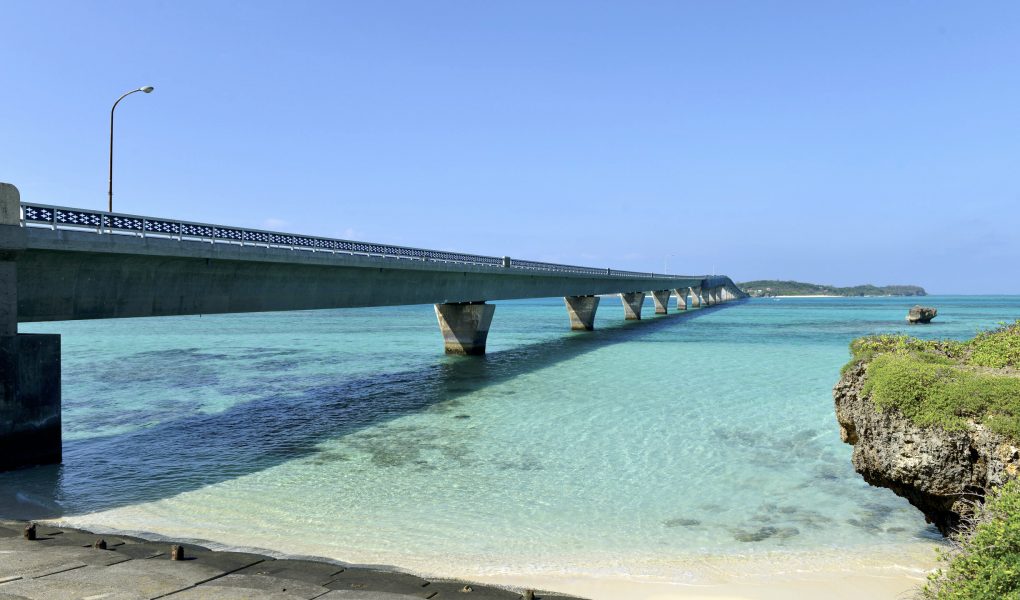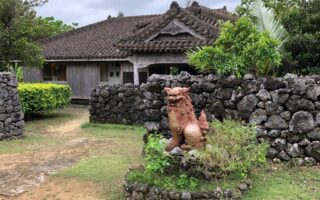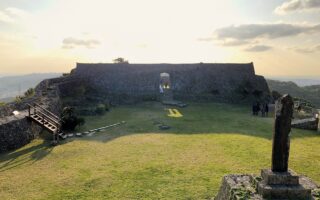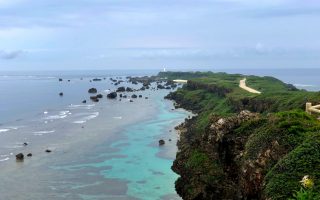Ikema island is the northern-most island in the Miyako island group. The island is connected to Miyakojima by the 1’425m long Ikema bridge. Ikema is a must-visit area for nature lovers. The entire island is a designated wildlife refuge, and the Ikema wetland is home to a large number of birds, making it perfect for birdwatching. In addition to that, just off the coast is the Yabiji coral reef – the largest of it’s kind in all of Okinawa!
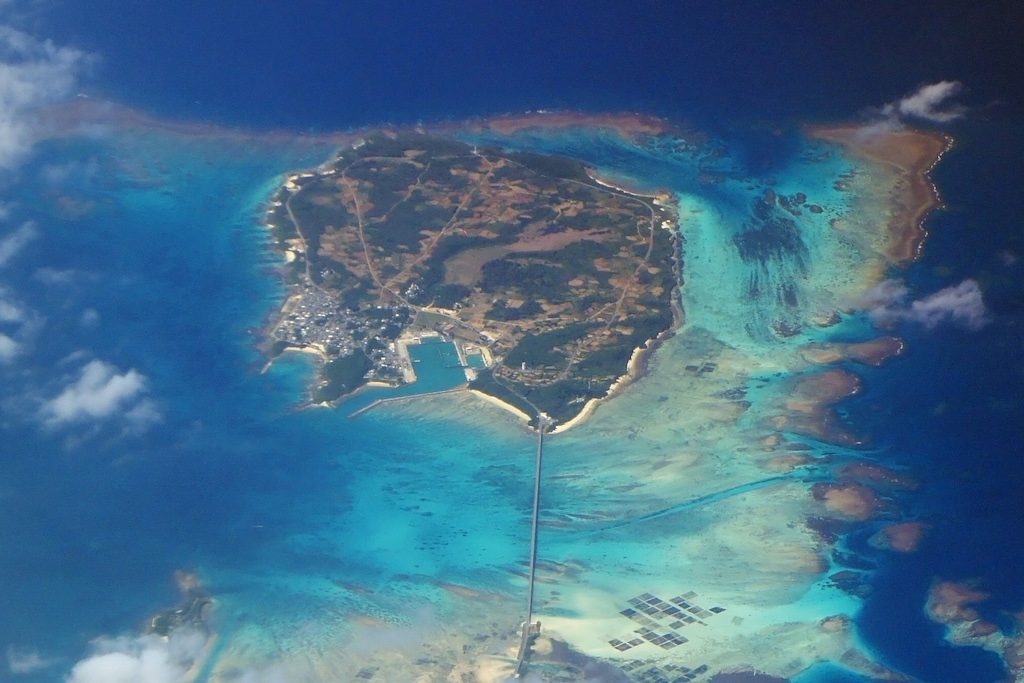
Facts about Ikema
Size: 2.83 km²
Population: 774 (2018)
Ikema bridge: 1’425m (1992)
Wildlife: the entire island is a wildlife refuge.
Specialty: Bonito fishing
Photo by 663highland. CC BY-SA 3.0.
Ikema island used to be two islands, separated by a narrow strait from north to south. In the 16th century, a stone bridge was built across the northern end of the strait. Eventually the connection between the two islands became permanent in the northern end. In the 1930’s, a sea wall and road was constructed on the southern end, and when the construction of a large fishing port on the southern part of the island was finished in 1982, the strait was permanently closed from both ends. The closing of the strait led to the creation of the Ikema wetland which today is a major resting spot for migrating birds, and the primary reason that the island is a designated wildlife refuge.
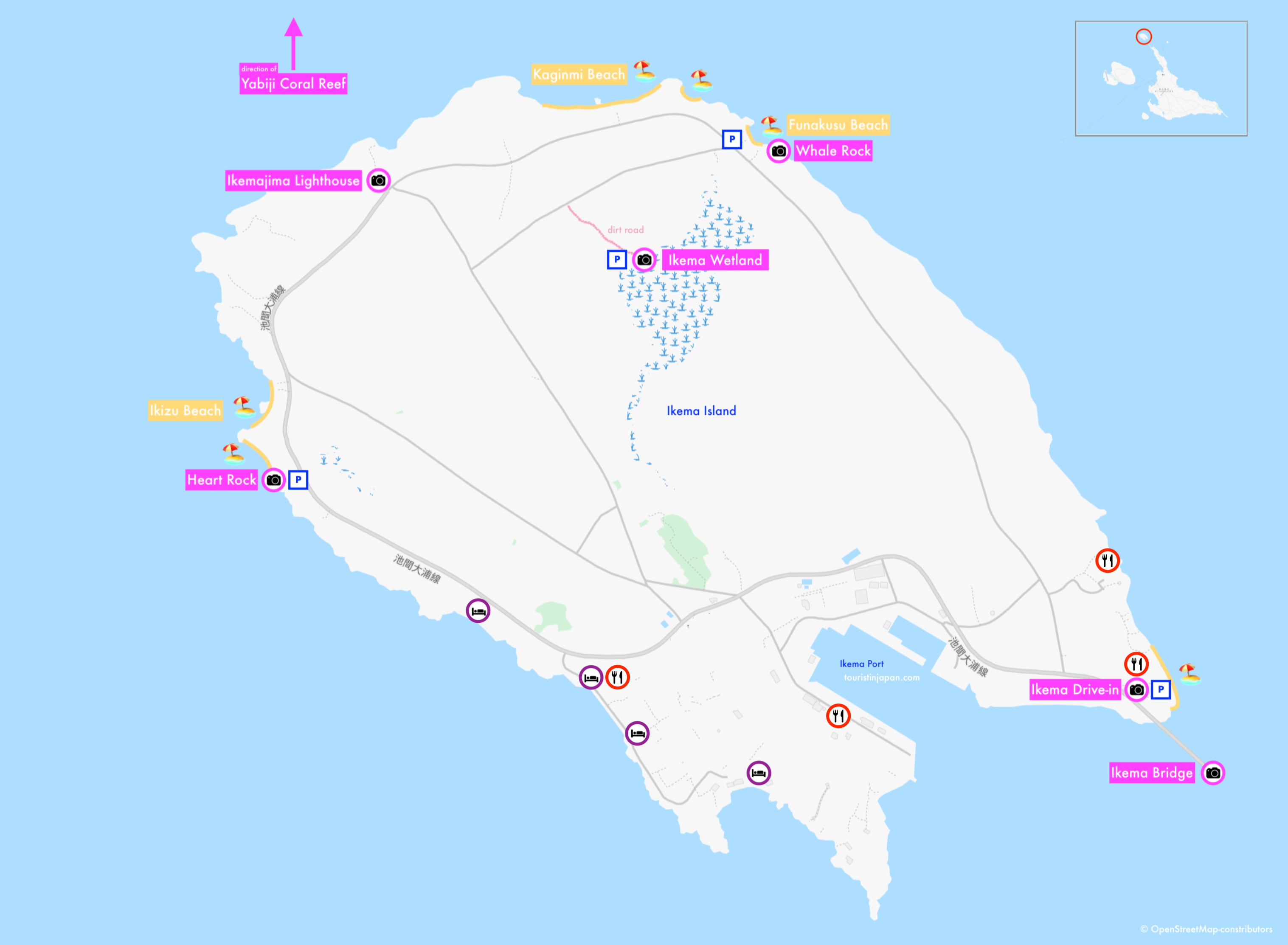
Beaches of Ikema
Ikema island has quite a number of small beaches. Many are secluded, but the list below names a few which are easily accessible. If you are into diving or snorkeling, then look into Yabiji Coral Reef which is located just north of Ikema Island (tours are arranged).
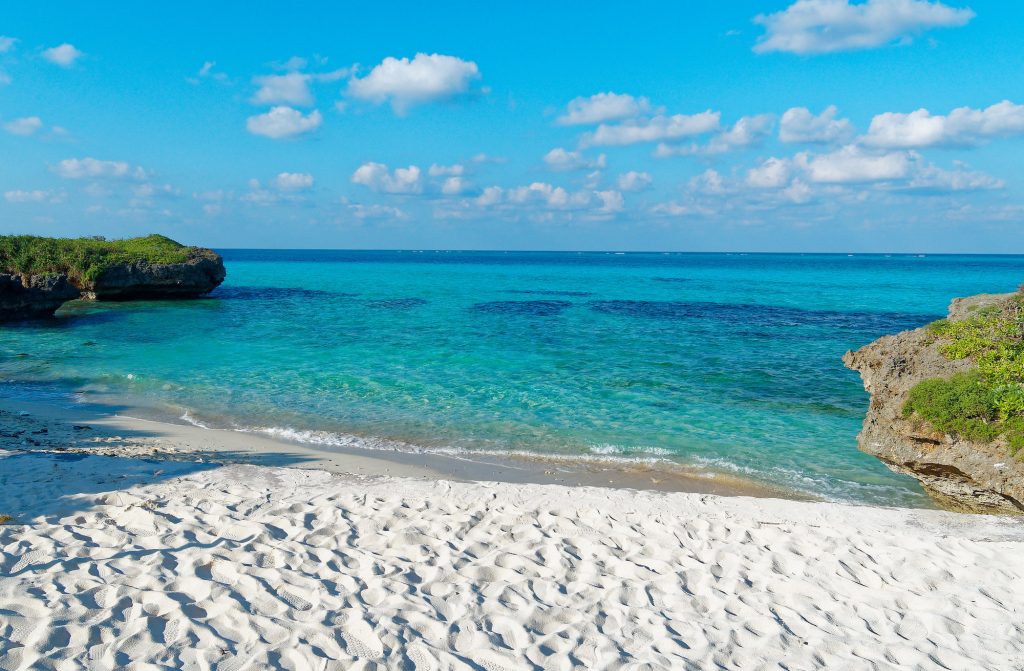
Funakusu Beach
This beautiful beach on Ikema island is a great snorkeling spot, and isn’t overrun by tourists. If you want a relaxed day at a remote beach, then grab your beach gear and head to the north of Ikema island.
Facilities: Toilets, Parking.
Photo © Nana*. Used with permission.
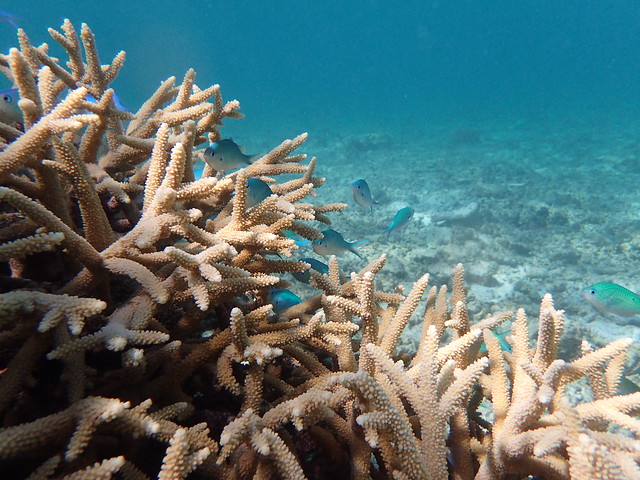
Kaginmi Beach
On the northern-most part of Ikema island is Kaginmi beach (カギンミビーチ). The beach is located quite near Funakusu beach. There is no proper parking at Kaginmi, so it is recommended to park at Funakusu beach and walk (5min). The beach is beautiful and offers great snorkeling!
Facilities: roadside parking.
Photo by Pierre Bear. CC BY-ND 2.0.
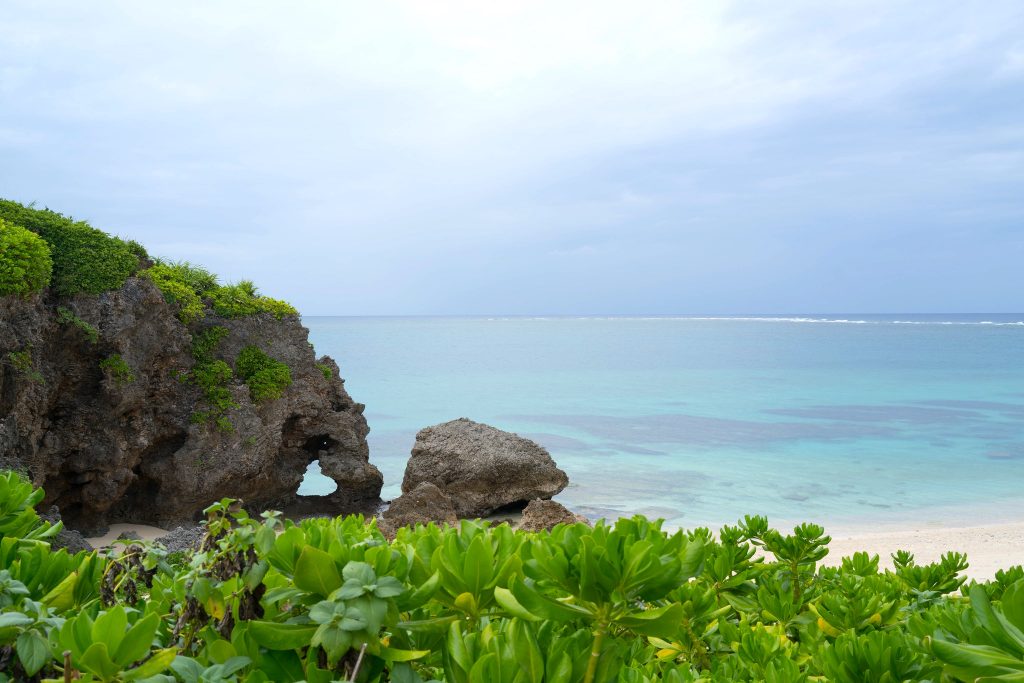
Attractions of Ikema
While Ikema island isn’t very big, it is very rich on nature. The attractions here are primarily nature related. It is the perfect place for visitors to observe and learn about the unique nature of Okinawa.
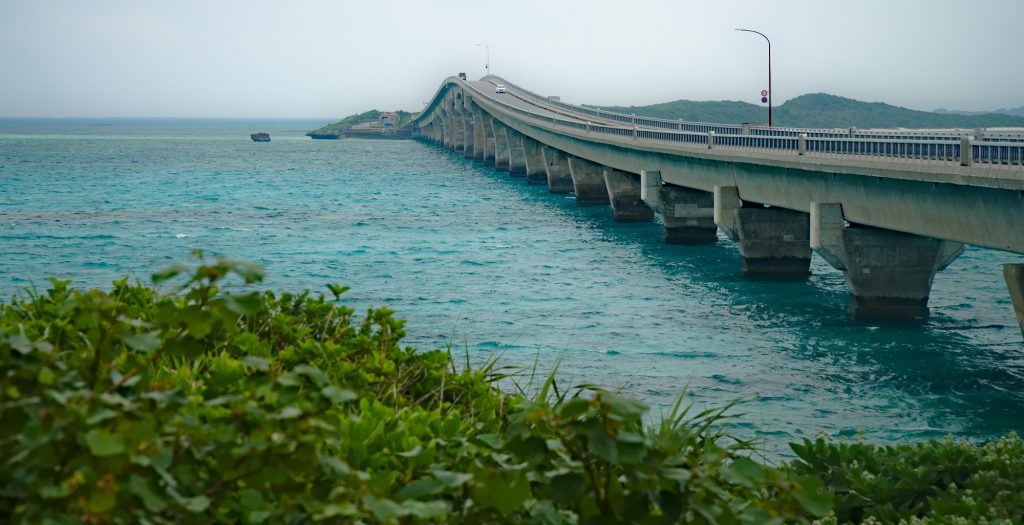
Ikema Bridge
The 1’425m long bridge to Ikema is a work of art. With its elegant bump on the middle, it has connected Ikema island to Miyako island since 1992. It is best viewed from the Ikema Island drive-in. Read more about the bridges of Miyakojima.
Photo © tourstinjapan.com
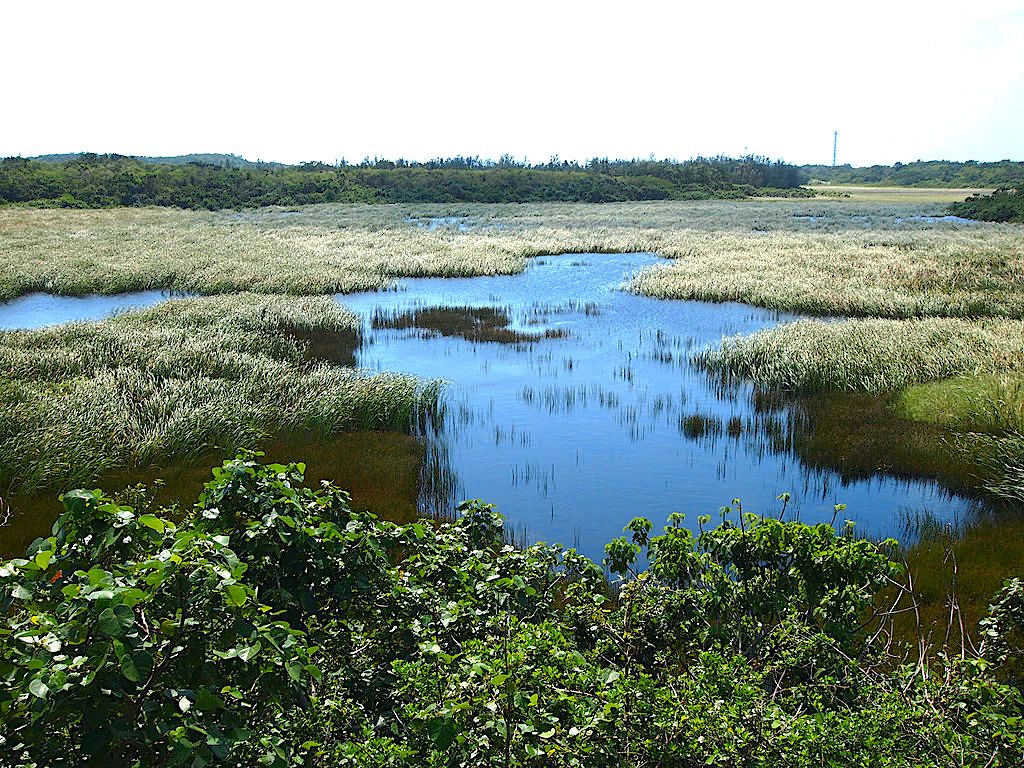
Ikema Wetland
Ikema-shitsugen is the largest wetland in Okinawa. The wetland hosts a large number of migrating birds, which like to rest here before continuing. This is one of the reasons why Ikema Wetland and the entire island of Ikema has become a wildlife refuge. Ikema used to be 2 islands, separated by a channel. The channel was gradually closed off from the sea over the centirues for land reclamation. In the 1980’s it was completely disconnected from the sea and the wetlands now stand as a unique bubble of life in the middle of the island. It is home to several types of crabs, including the huge coconut crab.
Photo by Paipateroma. CC BY-SA 3.0. Modified.
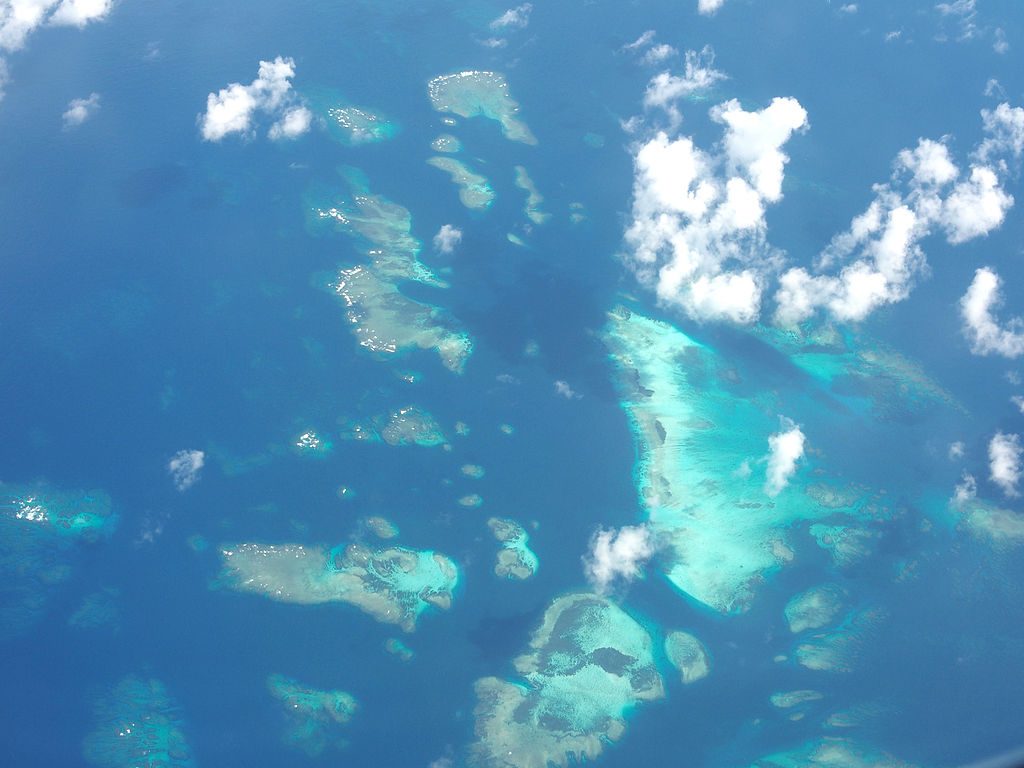
Yabiji Coral Reef
Yabiji Coral Reef is the largest group of corals in Japan. It is a unique coral reef, consiting of more than 100 seperate reefs. Yabiji is one of Miyakos main attractions for snorkelers and divers. Yabiji is sometimes called the “illusional land” because it is hidden below the water, except a few times a year, during low tide, when the corals peek up over the surface. Yabiji is suffering under the disastrous coral bleacing, like many of the worlds largest reefs. Tours are available from Ikema. In april, when the corals come above the surface, there are coral walking tours. It’s recommended to avoid the coral walking tour at all cost as it badly damages the reef. Please observe by diving instead – and never touch or step on the corals.
Photo by Paioateroma. CC BY-SA 4.0.
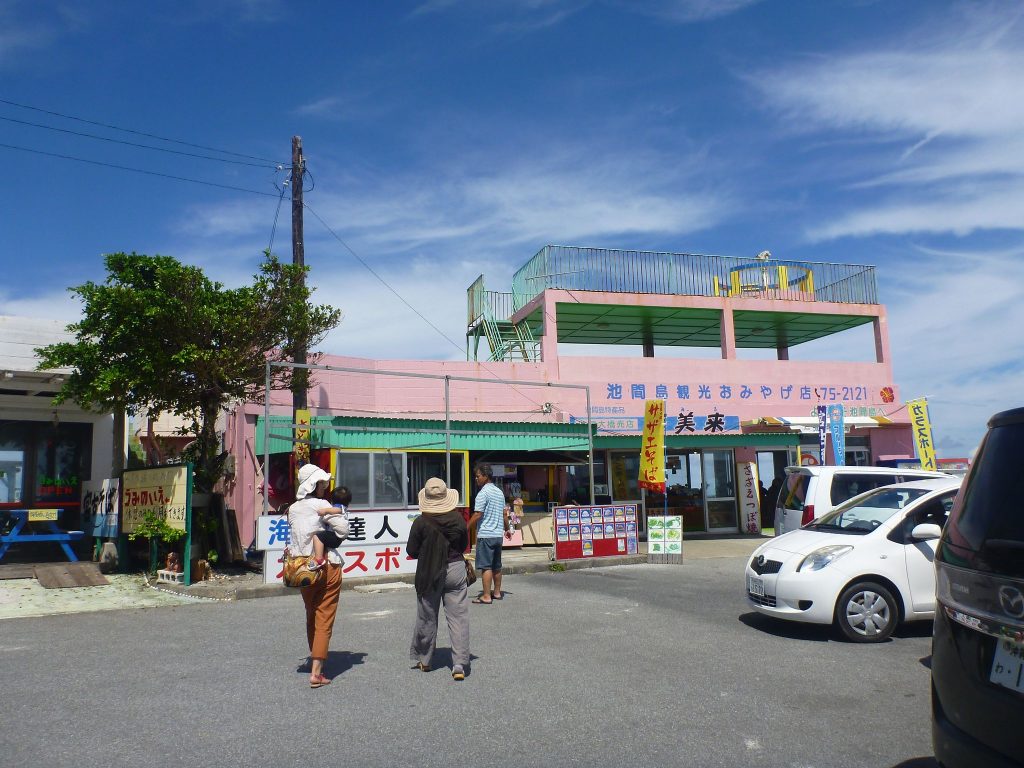
Ikema Island Drive-in
Immediately after crossing Ikema bridge, there is a parking lot with a number of colorful buildings. This is the so-called Ikema “drive-in”, a rest-stop where locals sell souvenirs, food etc. It is a really nice place to grab a snack, and enjoy the fantastic view of Ikema bridge and the turquoise water. There is a nice sand beach just below the drive-in area.
Photo by Kzaral. CC BY 2.0.
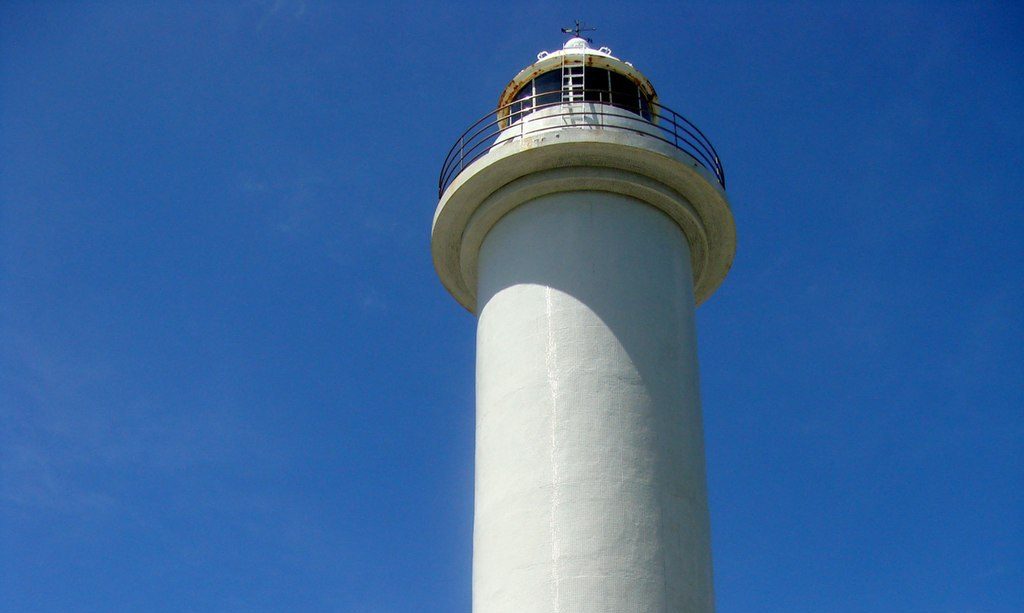
Ikemajima Lighthouse
On Ikemas north-western side stands a 22.8m tall, slim lighthouse. Ikema lighthouse was the first lighthouse in the Sakishima Islands when it opened in 1940. It was destroyed during the second world war, but was reconstructred in the 1960’s and completely rebuilt in 1986. The light sits in a height of 41.99m above the ocean. There is no access to the tower for visitors.
Photo by Paipateroma. CC BY-SA 4.0.

Heart Rock
On the islands western side, by Ikizu beach, is a rock formation with a hole shaped like a nearly perfect heart. The “heart rock” as it is called, has become quite an attractions – especially for lovers. The beach itself is definitely also worth a visit. Parking is available.
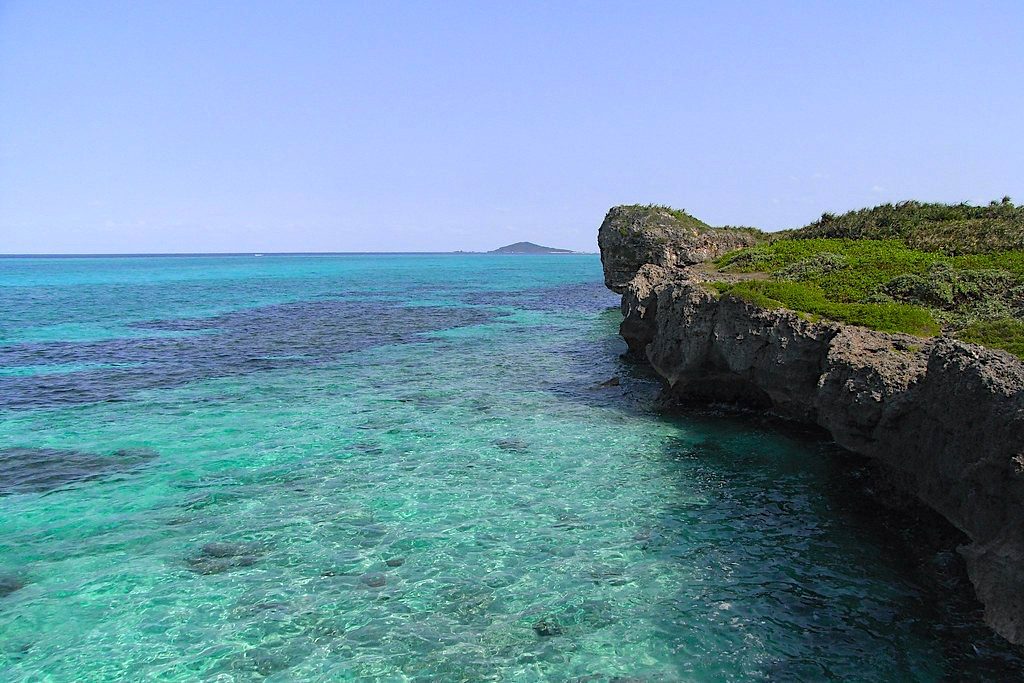
Whale rock (Kujira iwa くじら岩)
Just south of the famous Funakusu beach is a famous rock-formation sticking out of the coastline. The formation kind-of looks like a whale, and has been named “whale rock” for that reason. It is a fun little side excursion from your beach day at Funakusu.
Photo by sota. CC BY-SA 2.0. modified.
Restaurants of Ikema
- Omaha Terrace (OHAMAテラス)
- Ikema Shokudo ( 池間食堂 )
- Cafe Thasos (caféタソス)
- Kaimiru
Look for more restaurants and cafes on Ikema island on tabelog.
Accommodation of Ikema
Hotel Recommendations for Ikema island:
Aitai Nagahama (budget)
Located in Ikema town, right by the beach, Aitai Nagahama is a great find for the price. The rooms are charming Japanese style (futon) rooms.
Book now
Ilios Ikema Island (mid-class)
This greek-inspired mid-class hotel offers a very comfortable stay in Ikema town. The hotel has stunning ocean and beach views. Rooms are western-style.
Book now
Find more hotels in Miyakojima
Tours and Experiences of Miyakojima
- Stargazing & Nighttime Jungle Tour at Miyakojima
- Pumpkin Cave Tour with Snorkeling or SUP or Canoeing
- Half-day or 1-day snorkeling with SUP or Canoeing
- Snorkeling with Turtles in the Blue Sea of Miyakojima
- SUP Experience at a breathtaking beach on Miyakojima
- Experience the Natural Aquarium of Miyakojima sea
- Caving in Miyakojimas Pumpkin Cave
- Miyakojima Adventure: SUP or Canoe, snorkeling, caving
Getting there
By plane: fly into Miyakojima airport (MMY) on the main island. From here you can transfer to Ikema by car in 30 minutes.
Look for flights to Miyakojima
By car: from Miyakojima airport, head north-east on route 243. The road ends in a T-section with route 83. Turn left onto route 83 and continue north-west until you see signs for Ikema island. Follow the signs onto route 230 which will take you across Ikema bridge.
By bus: There are busses on the Miyako islands, but they are not well documented nor frequent. If you must take a bus, then you can find information about the stops at kotsu-okinawa.org.
Cover photo ©OCVB.

